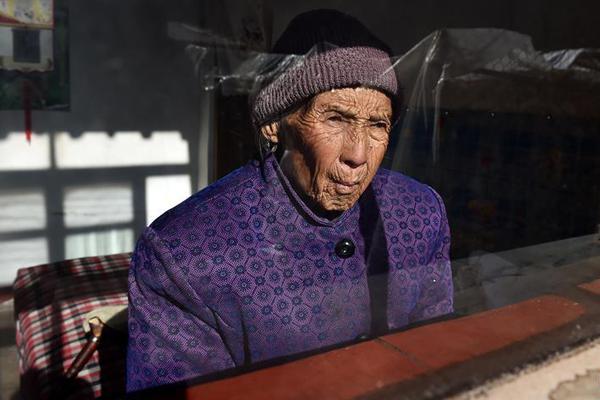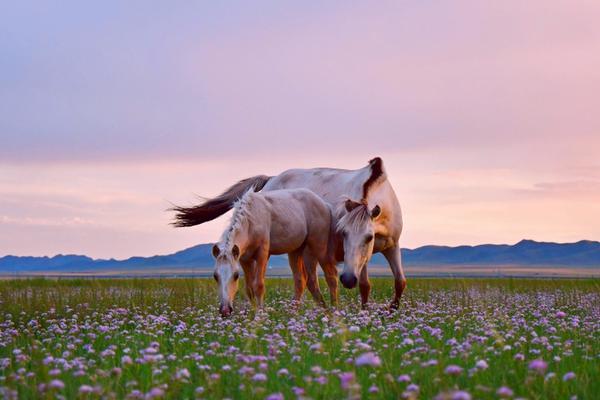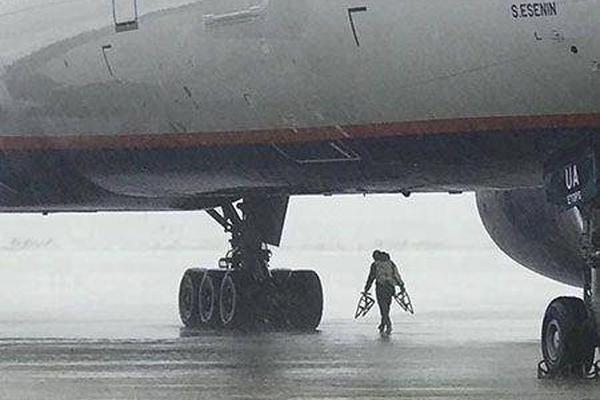bmy888 net index php
 bmy888 net index php
bmy888 net index php
ZURICH — Saudi Arabia was officially confirmed Wednesday by FIFA as host of the 2034 World Cup in men's soccer, giving the oil-rich kingdom its biggest prize yet for massive spending on global sports driven by Crown Prince Mohammed bin Salman. The Saudi bid was the only candidate and was acclaimed by the applause of more than 200 FIFA member federations. They took part remotely in an online meeting hosted in Zurich by the soccer body's president Gianni Infantino. "The vote of the congress is loud and clear," said Infantino, who had asked officials on a bank of screens to clap their hands at head level to show their support. The decision was combined with approving the only candidate to host the 2030 World Cup. Spain, Portugal and Morocco will co-host in a six-nation project, with Argentina, Paraguay and Uruguay each getting one of the 104 games. The South American connection will mark the centenary of Uruguay hosting the first World Cup in 1930. The decisions complete a mostly opaque 15-month bid process which Infantino helped steer toward Saudi Arabia without a rival candidate, without taking questions, and which human rights groups warn will put the lives of migrant workers at risk. "We look forward to hosting an exceptional and unprecedented edition of the FIFA World Cup by harnessing our strengths and capabilities to bring joy to football fans around the world," Prince Mohammed said in a statement. FIFA and Saudi officials have said hosting the 2034 tournament can accelerate change, including more freedoms and rights for women, with Infantino on Wednesday calling the World Cup a "unique catalyst for positive social change and unity." "I fully trust our hosts to address all open points in this process, and deliver a World Cup that meets the world's expectations," the FIFA president said. An international collective of rights groups said FIFA made a "reckless decision" to approve Saudi Arabia without getting public assurances, and the Football Supporters Europe group said it was "the day football truly lost its mind." A fast-track path to victory was cleared last year by FIFA accepting the three-continent hosting plan for the 2030 World Cup. It meant only soccer federations in Asia and Oceania were eligible for the 2034 contest, and FIFA gave countries less than four weeks to declare a bid. Only Saudi Arabia did. The win will kick off a decade of scrutiny on Saudi labor laws and treatment of workers mostly from South Asia needed to help build and upgrade 15 stadiums, plus hotels and transport networks ahead of the 104-game tournament. Amnesty International said awarding the tournament to Saudi Arabia represents "a moment of great danger" for human rights. "FIFA's reckless decision to award the 2034 World Cup to Saudi Arabia without ensuring adequate human rights protections are in place will put many lives at risk," said Steve Cockburn, Amnesty International's Head of Labor Rights and Sport." One of the stadiums is planned to be 350 meters (yards) above the ground in Neom — a futuristic city that does not yet exist — and another named for the crown prince is designed to be atop a 200-meter cliff near Riyadh. During the bid campaign, FIFA has accepted limited scrutiny of Saudi Arabia's human rights record that was widely criticized this year at the United Nations. Saudi and international rights groups and activists warned FIFA it has not learned the lessons of Qatar's much-criticized preparations to host the 2022 World Cup. "At every stage of this bidding process, FIFA has shown its commitment to human rights to be a sham," Cockburn said. The kingdom plans to spend tens of billion of dollars on projects related to the World Cup as part of the crown prince's sweeping Vision 2030 project that aims to modernize Saudi society and economy. At its core is spending on sports by the $900 billion sovereign wealth operation, the Public Investment Fund, which he oversees. "It's amazing. The infrastructure, the stadiums, the conditions for the fans and everything. After what I see, I'm more convinced that 2034 will be the best World Cup ever," Cristiano Ronaldo said in a recorded package posted on X. The five-time Ballon d'Or winner has been part of Saudi Arabia's lavish spending on soccer — stunning the sport when agreeing to sign for Al Nassr in 2022 for a record-breaking salary reportedly worth up to $200 million a year. Critics have accused Saudi Arabia of "sportswashing" the kingdom's reputation. The prince, known as MBS, has built close working ties to Infantino since 2017 — aligning with the organizer of sport's most-watched event rather than directly confronting the established system as it did with the disruptive LIV Golf project. The result for Saudi Arabia and FIFA has been smooth progress toward the win Wednesday with limited pushback from soccer officials, though some from women international players. The steady flow of Saudi cash into international soccer is set to increase. FIFA created a new and higher World Cup sponsor category for state oil firm Aramco, and Saudi funding is set to underwrite the 2025 Club World Cup in the United States that is a pet project for Infantino. North American soccer body CONCACAF signed a multi-year deal with PIF, Saudi stadiums host Super Cup games for Italy and Spain, and nearly 50 FIFA member federations have signed working agreements with Saudi counterparts. Lavish spending by PIF-owned Saudi clubs in the past two years buying and paying players – including Cristiano Ronaldo, Neymar, Karim Benzema and Sadio Mané – put hundreds of millions of dollars into European soccer. That influence could be key in talks to agree which months to play the 2034 World Cup. The November-December slot taken by Qatar in 2022 to avoid extreme midsummer heat is complicated in 2034 by the holy month of Ramadan through mid-December and Riyadh hosting the multi-sport Asian Games. Still, January 2034 could be an option — and likely better for European clubs and leagues —after the International Olympic Committee said it saw few issues in clashing with the Salt Lake Winter Games opening Feb. 10, 2034. The IOC also has a major commercial deal with Saudi Arabia, to host the new Esports Olympics. Get local news delivered to your inbox!
Downing throws for 2 TDs, runs for another, Elon tops North Carolina A&T 31-21Powerhouse lawyer and politician Pam Bondi may have become the sixth woman to land a key role in Donald Trump ’s cabinet after he named her as his pick for America’s next Attorney General. But some US experts and observers believe six other women – all of whom are members of the President-elect’s own family – are likely to wield even greater power and influence in the White House over the next four years. They are his wife Melania, who will become First Lady again in January, daughter-in-law Lara, who played a massive role in Mr Trump’s re-election, daughters Ivanka and Tiffany, granddaughter Kai and Kimberly Guilfoyle, who is engaged to his eldest son, Donald Trump Jr. Barbara Perry, from the University of Virginia, said: “Just as Donald inherited his father’s real estate business, he is grooming family members to carry on the family’s political ambitions. Trump may eventually depart, but Trumpism will not.” Republican strategist Mike Madrid said that his party’s sweeping electoral victory to reclaim the White House, win back the Senate and maintain a majority in Congress, has placed Lara Trump “in a very powerful position,” adding: “She certainly seems to want the role most.” Lara, the loyal 42-year-old wife of Donald Trump ’s son Eric, was a mastermind behind her father-in-law’s campaign as co-chair of the Republican Party. The mother-of-two, a former TV producer who was once urged by party faithful to make a run herself for the Senate, famously silenced dissenting voices during a meeting by saying: “I don’t know why someone would be dumb enough to challenge Donald Trump .” First Lady Melania, 54, has already said she intends to divide her time between Washington DC and New York, where son Barron, 18, attends the New York University Stern School of Business. The Slovenian-born former supermodel, fluent in five languages, is however expected to regularly accompany her husband on important foreign trips. He has said of her: “Melania is my rock and foundation. The cornerstone of our family.” Ivanka, 43, the President-elect’s eldest daughter with Ivana, the first of his three wives, and her husband, businessman and investor Jared Kushner, were key advisers during the first Trump presidency. Mother-of-three Ivanka says she “stepped back” from politics during her father’s campaign to focus on her own young family, but both she and Jared are now reportedly in line for similar roles to last time as “special counselors”. Kimberly Guilfoyle, 55, who is engaged to Donald Trump Jr, 46, is a former prosecutor and TV presenter. She became “axiomatic” to Trump’s campaign when she ran its hugely successful fundraising division. She is expected to take on a high-level advisory role in the White House. Also waiting in the wings are his youngest daughter Tiffany, 31, and even granddaughter Kai, 17, both of whom are being tipped as “future political prospects”. Tiffany spoke for the first time on behalf of her father during a rally in Reading, Pennsylvania, but the law graduate has put politics on hold while expecting her first child. Kai, whose father is Donald Trump Jr, also made her public debut, appearing on stage with her grandfather making her first speech and then posting on X: “No one works harder or cares more about the American people.” She added: “Congratulations Grandpa, I love you.”
BEIRUT -- Thousands of people fled the central Syrian city of Homs, the country’s third largest, as insurgents seized two towns on the outskirts Friday, positioning themselves for an assault on a potentially major prize in their march against President Bashar Assad. The move, reported by pro-government media and an opposition war monitor, was the latest in the stunning advances by opposition fighters over the past week that have so far met little resistance from Assad’s forces. A day earlier, fighters captured the central city of Hama , Syria’s fourth largest, after the army said it withdrew to avoid fighting inside the city and spare the lives of civilians. The insurgents, led by the jihadi Hayat Tahrir al-Sham group, or HTS, have vowed to march to Homs and the capital, Damascus, Assad’s seat of power. Videos circulating online showed a highway jammed with cars full of people fleeing Homs, a city with a large population belonging to Assad’s Alawite sect, seen as his core supporters. If Assad’s military loses Homs, it could be a crippling blow. The city, parts of which were controlled by insurgents until 2014, stands at an important intersection between Damascus and Syria’s coastal provinces of Latakia and Tartus, where Assad enjoys wide support. Homs province is Syria’s largest in size and borders Lebanon, Iraq and Jordan. The city is also home to one of Syria’s two state-run oil refineries. Pressure on the government intensified from multiple directions. Opposition protesters stormed security posts and army positions in the southern province of Sweida, opposition activists said. U.S.-backed Kurdish forces who control eastern and northeastern Syria began to encroach on government-held territory. After years of largely being bottled up in a northwest corner of the country, the insurgents burst out a week ago, captured the northern city of Aleppo, Syria’s largest , and have kept advancing since. Government troops have repeatedly fallen back. The sudden offensive has flipped the tables on a long-entrenched stalemate in Syria’s nearly 14-year-old civil war. Along with HTS, the fighters include forces of an umbrella group of Turkish-backed Syrian militias called the Syrian National Army. Turkey has denied backing the offensive , though experts say insurgents would not have launched it without the country's consent. HTS’s leader, Abu Mohammad al-Golani, told CNN in an exclusive interview Thursday from Syria that Assad’s government was on the path to falling, propped up only by Russia and Iran. “The seeds of the regime’s defeat have always been within it,” he said. “But the truth remains, this regime is dead.” A key question about Assad’s ability to fight back is how much top ally Russia — whose troops back Assad’s forces — will throw support his way at a time when it is tied up in the war in Ukraine. Russian Foreign Minister Sergey Lavrov said he planned to discuss the developments in Syria with his Turkish and Iranian counterparts at a meeting Friday in the Qatari capital, Doha. In an interview with former Fox News host Tucker Carlson, he said international actors were backing the insurgents’ advances and that he would discuss “the way to cut the channels of financing and arming them.” Meanwhile, Russia’s embassy in Syria issued a notice reminding Russian citizens that they may use commercial flights to leave the country “in view of the difficult military-political situation.” The foreign ministers of Iran, Iraq and Syria — three close allies — gathered Friday in Baghdad to consult on the rapidly changing war. Syrian Foreign Minister Bassam Sabbagh said the current developments may pose “a serious threat to the security of the region as a whole.” The insurgent fighters on Friday took over the central towns of Rastan and Talbiseh, putting them 5 kilometers (3 miles) from Homs, according to the Britain-based Syrian Observatory for Human Rights, an opposition war monitor. “The battle of Homs is the mother of all battles and will decide who will rule Syria,” said Rami Abdurrahman, the Observatory’s chief. Pro-government Sham FM said the insurgents entered Rastan and Talbiseh without facing any resistance. There was no immediate comment from the Syrian military. The Observatory said Syrian troops had left Homs. But the military denied that in comments reported by the state news agency SANA, saying troops were reinforcing their positions in the city and were “ready to repel” any assault. In eastern Syria, the Kurdish-led Syrian Democratic Forces coalition said it had moved into the government-held half of the city of Deir el-Zour, apparently without resistance. One of the main cities in the east, Deir el-Zour had long been split between the government on the western side of the Euphrates River and the SDF on the eastern side. The SDF also said it took control of further parts of the border with Iraq. That appeared to bring it closer to the government-held Boukamal border crossing. The crossing is a vital for the government because it is the gateway to the corridor to Iran, a supply line for Iran-backed fighters, including Lebanon’s Hezbollah. At the same time, insurgents seized Syria’s sole crossing to Jordan, according to opposition activists. Jordan announced it was closing its side of the crossing. Lebanon also closed all but one of its border crossings with Syria. The opposition assault has struck a blow to Syria’s already decrepit economy. On Friday, the U.S. dollar was selling on Syria’s parallel market for about 18,000 pounds, a 25% drop from a week ago. When Syria’s conflict erupted in March 2011, a dollar was valued at 47 pounds. The drop further undermines the purchasing power of Syrians at a time when the U.N. has warned that 90% of the population is below the poverty line. Syria’s economy has been hammered for years by the war, Western sanctions, corruption and an economic meltdown in neighboring Lebanon, Syria’s main gate to the outside world. Damascus residents told The Associated Press that people are rushing to markets to buy food, fearing further escalation. The worsening economy could be undermining the ability of Syria’s military to fight, as the value of soldiers’ salaries melts away while the insurgents are flush with cash. Syria’s military has not appeared to put up a cohesive counteroffensive against the opposition advances. SANA on Friday quoted an unnamed military official as saying the Syrian and Russian air forces were striking insurgents in Hama province, killing dozens of fighters. Syria’s defense minister said in a televised statement late Thursday that government forces withdrew from Hama as “a temporary tactical measure” and vowed to gain back lost areas. “We are in a good position on the ground,” Gen. Ali Mahmoud Abbas said, saying troops remained “at the gates of Hama.” He spoke before the opposition advanced further south toward Homs. He said the insurgents, whom he described as “takfiri” or Muslim extremists, are backed by foreign countries. He did not name the countries but appeared to be referring to Turkey and the United States. ___ Associated Press writers Albert Aji in Damascus, Syria, and Suzan Fraser in Ankara, Turkey, contributed to this report.




